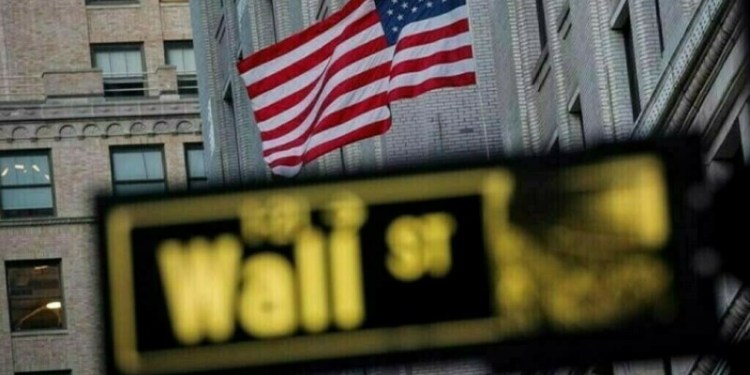NEW YORK: US stocks fell on Friday after weak jobs data and the expectations of higher inflation raised the chances of a more cautious Federal Reserve, while a report stating that President Donald Trump might impose reciprocal tariffs added to worries.
A survey showed US consumer sentiment dropped unexpectedly in February to a seven-month low and inflation expectations rocketed, with households seeing inflation over the next year surging to 4.3% – the highest since November 2023.
“Today’s surge in year-ahead inflation expectations comes along with other price signals this week that are not favorable for the Federal Reserve to deliver on expected rate cuts,” Wells Fargo economists said.
Earlier in the day, US job growth slowed more than expected in January after robust gains in the prior two months, but a 4% unemployment rate probably will give the Fed cover to hold off cutting interest rates at least until June.
The final employment report under former President Joe Biden’s administration showed 598,000 fewer jobs were created in the 12 months through last March than previously estimated. The final payrolls benchmark revision, however, was less than the reduction of 818,000 jobs estimated back in August.
Traders of short-term interest-rate futures now expect the Fed to cut interest rates just once this year, backing away from earlier bets on two rate cuts starting in June. Two sources familiar with the plans told Reuters that Trump told Republican lawmakers that he planned to announce reciprocal tariffs as early as Friday.
“Welcome to Trump 2.0, same as Trump 1.0. Every day you get a new headline and every day you get market volatility,” said Thomas Hayes, chairman at Great Hill Capital LLC.
At 11:23 a.m. ET, the Dow Jones Industrial Average fell 203.26 points, or 0.45%, to 44,545.15, the S&P 500 lost 32.16 points, or 0.53%, to 6,051.41 and the Nasdaq Composite lost 183.29 points, or 0.93%, to 19,608.70. Nine of the 11 S&P 500 sectors traded lower, with consumer discretionary leading losses with a 1.7% fall.
Amazon.com dipped 3.7% due to weakness in the retailer’s cloud computing unit, Amazon Web Services, and lower-than-expected forecasts for first-quarter revenue and profit.
Markets had a dismal start to the week when Trump announced sweeping trade tariffs over the weekend, but suspended the levies on goods from Mexico and Canada on Monday for a month.
Since then, a host of strong earnings and optimism about a potential China-US trade deal despite Beijing’s tit-for-tat tariffs have the S&P 500 and the Dow on track for weekly gains, with the blue-chip index on pace for its fourth straight weekly rise.
Among other movers, Expedia added 18.2% after the online travel platform posted better-than-expected fourth-quarter results. Elf Beauty tumbled 19.3% after the cosmetics company cut its annual net sales and profit forecasts.
Declining issues outnumbered advancers by a 2.05-to-1 ratio on the NYSE and by a 2.19-to-1 ratio on the Nasdaq. The S&P 500 posted 33 new 52-week highs and 16 new lows while the Nasdaq Composite recorded 77 new highs and 104 new lows.

Source: Brecorder























